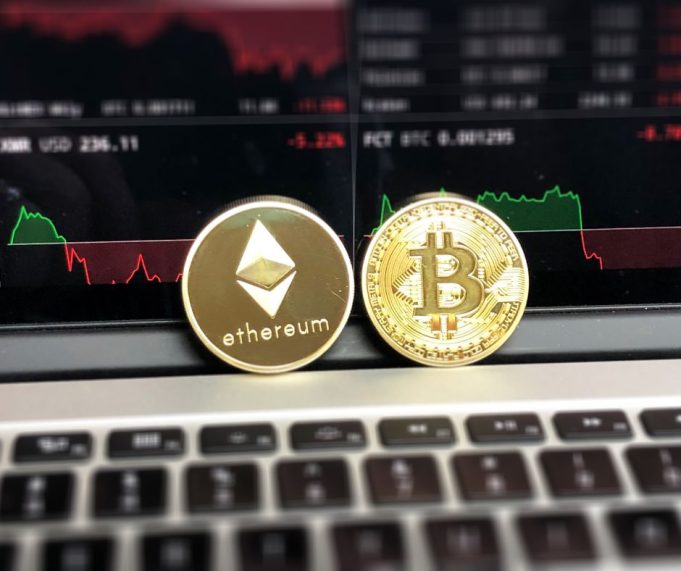Monday marks the beginning of the work week in Asia, and the U.S. is off for Presidents’ Day. Bitcoin and ether have both seen losses in the past 24 hours, with bitcoin trading at $24,226 and ether at $1,689, both down close to 2% and 1.5% respectively. However, in the last week, both cryptocurrencies have seen gains, with bitcoin up 11% and ether up 9%. Layer 1s such as Solana, Polkadot, and Polygon have also seen double-digit gains, increasing by 20%, 19%, and 18.5% respectively. This could be a sign of a bullish market, with investors looking to capitalize on the potential of these cryptocurrencies.
Elon Musk’s tweet last week caused a surge in the prices of Dogecoin (DOGE) and Shiba Inu (SHIB), with DOGE up 5% and SHIB up 4% on the week. Floki, another crypto asset named after Musk’s dog, is still up 108% for the week despite a 7% drop on the day. Joe DiPasquale, CEO of crypto fund manager BitBull Capital, believes that $23,000 is bitcoin’s new support level and that the next week is critical for bitcoin to reach $30,000. Investors should keep an eye on the market to see if the gains from Musk’s tweet will be sustained and if bitcoin can reach its next milestone.
Bitcoin has recently reclaimed the $23,000 mark, which is a critical milestone for the cryptocurrency to continue its upward rally. Analysts believe that if Bitcoin can close February with a bullish monthly close, it may be able to test the $30,000 mark. Coinbase is set to post its earnings in the coming week, and investors are expecting lukewarm results. With U.S. regulators looking to cut off crypto’s banking access, Coinbase executives will likely have a lot to say on the topic. It remains to be seen if the crypto market can hold its upward rally in the face of these challenges.
Hong Kong is taking steps to regulate the cryptocurrency industry, with a licensing regime for Virtual Asset Service Providers (VASPs) – the local term for crypto exchanges – set to begin on June 1. However, this does not mean that crypto will be fully legal for everyone in the city. The VASP framework for licensing exchanges allows them to provide access only to accredited professional investors, and retail investors are excluded. This is the result of a multiyear consultation process, and the situation may change in the future. For now, retail traders in Hong Kong will not be able to access crypto exchanges.
The United States is at risk of losing its status as a global financial hub due to its lack of clear regulations on cryptocurrencies and a hostile environment from regulators. Congress should act quickly to pass legislation that will provide clarity and open up access to crypto services. The European Union, the United Kingdom, and Hong Kong have all taken steps to provide access to virtual asset services, and the Hong Kong government has indicated that the Securities and Futures Commission may consider retail access in the future. The US must act now to ensure that it remains competitive in the global financial market.
The Securities and Futures Commission (SFC) of Hong Kong is considering offering cryptocurrencies to retail investors. CEO Julia Leung has stated that only highly liquid assets will be available at first. June 1 is seen as an opportunity to further strengthen the city’s reputation as a global financial hub, with the SFC expanding its staff to handle the expected influx of license applications. The SFC is taking a cautious approach to ensure that only the most reliable and secure cryptocurrencies are available to investors, providing a safe and secure environment for trading.
Hong Kong is emerging as a leader in the global cryptocurrency industry, thanks to its well-regulated and sustainable investment environment. The city’s credibility comes from its “rule of law, regulation, and commercial modus operandi,” according to Christopher Hui, Secretary for Financial Services and the Treasury (FSTB). Hui believes that Hong Kong is well-positioned to bring together investments from around the world and manage them in a responsible and sustainable manner. With its strong legal framework and commitment to innovation, Hong Kong is becoming an attractive destination for cryptocurrency investors and businesses looking to capitalize on the potential of the digital asset market.
The Hong Kong government has recently introduced new regulations for cryptocurrency platforms, which could bring clarity and stability to the industry. This could be beneficial for local institutional investors, who will be able to interact with foreign platforms through their foreign subsidiaries. However, some in Hong Kong are skeptical of the new regulations, as they may not provide enough incentive for platforms to incorporate in Hong Kong and go through the strict licensing requirements. Despite this, Leo Weese, co-founder of the Bitcoin Association of Hong Kong, is optimistic that the new regulations will grant individuals easy access to bitcoin, as they have become accustomed to in the past 12 years.
Retail investors in Hong Kong are excited about the opportunity to use a local entity to trade. Hong Kong has no capital gains tax, and the success of Japanese traders post-FTX shows the potential of a regulated environment. However, the retail investor turn in Hong Kong is still a work in progress. The Hong Kong government is working to create a secure and regulated environment for retail investors to trade, while also protecting them from potential risks. With the right regulations in place, Hong Kong could become a hub for retail investors looking to take advantage of the tax-free environment and the potential of a regulated trading environment.













